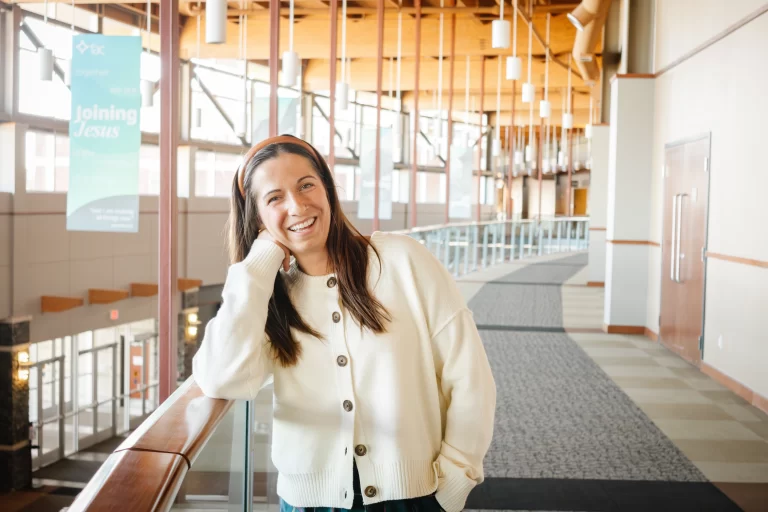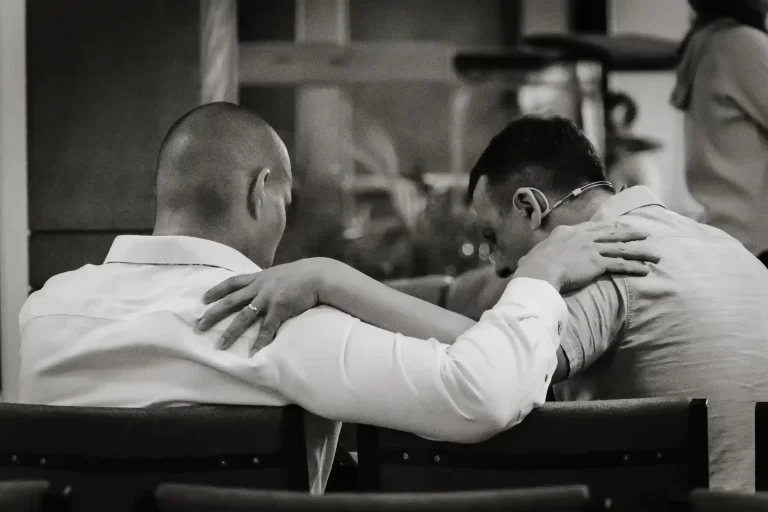
 When we’re young, we have high and lofty aspirations for life. We quickly learn, however, that expectations don’t always match reality. If we could pick and choose our own life events, we would probably not include pain, sickness, loneliness, depression, addiction, flat tires, root canals, bank foreclosures, or hip surgery!
When we’re young, we have high and lofty aspirations for life. We quickly learn, however, that expectations don’t always match reality. If we could pick and choose our own life events, we would probably not include pain, sickness, loneliness, depression, addiction, flat tires, root canals, bank foreclosures, or hip surgery!
But life happens.
Have you been blindsided by an uninvited trial or challenge that came out of nowhere recently that left you wondering, “God, how could you let this happen? Why me, why now?”
Would it help to know that God has heard this before?
- Gideon questioned, “If the Lord is with us, why has all this happened to us?”
- Habakkuk prayed, “How long, Lord, must I call for help and you do not listen?”
- David cried out, “Wake up, Lord. Are you sleeping? Can’t you hear me?”
- Or how about this one from Jesus Himself: “My God, why have you forsaken me?”
Maybe you feel forsaken right now. You’re overwhelmed with pain of one kind or another, convinced that there’s no comfort for you anywhere in the universe. Everyone sits next to their own pool of tears. And some of your pools are very deep. So when James says counterintuitively: “Consider it a sheer gift, friends, when challenges come at you from all sides” (James 1:2), you wonder who in the world he is talking to!? But some of Scripture’s most encouraging words and beautiful music come from the most daunting situations, darkest caves or driest deserts—the petri dishes for our faith.
James warns us (verse 2) that we’re going to go through lots of trials, things that test our faith and cause it to grow. What is faith? Faith is hanging tough, trusting God, even when the trials overwhelm us, and the evidence suggests we bail. When we find ourselves in those difficult situations and somehow choose to believe God is faithful and will see us through, James goes on record and says He will!
Putting the Pieces Together
Life is like a jigsaw puzzle. We have unique pieces that represent the events of our lives. We start out with a puzzle-making plan, and gradually, we progress, and it can be gratifying. We might even get on a roll, and from a puzzle perspective, every piece fits nicely—bam, bam, bam—perfect health, perfect wife, perfect family, perfect job. Life is good! Thank you, Jesus.
And then, out of the blue, you get a piece that doesn’t fit. “Where did this piece come from? I don’t want this!!” Your child makes a bad decision. You lose a job. Someone you trust suddenly turns on you. You’re the innocent victim of a crime. Or maybe you get this piece—your spouse leaves without warning. Or you thought you’d grow old and retire and travel and enjoy the grandkids, but then the doctor says you’re really sick, and you cry out, “This can’t be happening!!”
But it is.
As Philip Yancey puts it, “Pain plays as a kind of background static to our lives.” It just does. And James tells us (1:3) how God uses that static, the pain in our lives, to grow our faith, draw us closer to Him to prove that He is there and that He cares. We don’t like that formula, but almost every story in the Bible is based on some kind of “pain/trial” narrative. James is simply underscoring it again.
Most of us, I think, would say we want to be closer to God, but how many of us would add a postscript, “And if you want to use disappointment or loss, Lord, that’s okay too”? Paul did this in Philippians 3:10. He talks about wanting to know God and the power of His resurrection. That’s lofty! Then he adds, “I also want to participate in His suffering.” Ouch. I forget to know God and know His suffering is often a package deal. I want the random, phantom pieces of my puzzle to somehow coalesce and make sense every time, all the time… but I don’t want to have to go through the pain to get it.
The inescapable truth is that God is most present in the middle of our pain; He wants to (and will) meet us in our suffering. It’s always been that way. James knew it first-hand. He watched Jesus, his own brother, suffer and die. James himself was persecuted and died because he refused to recant his faith. So that’s his story. And the people he’s writing to? Verse 1 says he’s writing to new believers who’ve been scattered, driven from homes and living in caves in the desert because of persecution. So we have a guy whose life is full of pain writing to people who are themselves in pain.
So what do you tell people who have lost everything and think God is absent and doesn’t care?
One of, if not the most difficult questions I get as a pastor is this: “Why God? Why me? Why now?”
Here’s my best shot at an answer. In Mathew 5, Jesus talks about establishing His kingdom—a domain where ordinary people who don’t think they have a chance—could be under the direct rule, care and protection of God. The kingdom starts now in this life and then continues for eternity. If you’re suffering right now, if you’re poor in spirit, spiritually dry, hungry and thirsty, I’m announcing a special wave of tender blessing on you all. Jesus’ kingdom is open to the likes of you. There’s comfort, consolation, joy, and peace in this universe for you, and you will find it in His kingdom today and enjoy it forever. So, come on in.
Here’s the message of Christianity for the hurting: You have a “now”—and that “now” can be very difficult. But if you have a relationship with God through Jesus Christ, you have guaranteed Help for your “now,” and you have eternal hope for the future. James puts it like this in 1:12:
Blessed is the one who perseveres under trial because, having stood the test, that person will receive the crown of life that the Lord has promised to those who love him.
See, in the puzzle of life, we get many pieces we don’t understand. But God’s sovereignty and His ultimate hope for us don’t depend on our fluctuating circumstances or even misfortune. We get the two confused because we think we know, through the tiny prism of our short lives, what’s best for us, and God must surely be thinking the same thing.
Our faith should be in God, not in the outcomes we want. So when we’re faced with a problem, and we attempt to prescribe the outcome and say, “God, this is what you need to do because this is what I want,” we want our will and God’s at the same time. In 1:7, James gives this a name—“double-minded.”
Let’s say, for example, you pull this puzzle piece in life—you’re diagnosed with a terminal illness, and you hear Him say, “It’s going to be okay.” And what you think He means is, I will be healed. But that’s not what He said. What He said was, “It’s going to be okay”.
“No, God, you need to heal me for me to be okay.” No, actually, our faith shouldn’t be in the outcomes we want. Our faith needs to be in God. Our joy doesn’t depend on our circumstances. Our joy depends on the hope we have set before us. And when we get these painful pieces we don’t like, we need to remember we serve a God who has something bigger in mind. His thoughts are higher, and His ways are beyond our wildest dreams.
God is taking all these little pieces of our puzzle—with some sort of divine chirography—-some we’re good with, some not so much—but He takes all of them and works them out for the good of those who love Him and are called according to His purpose (not ours) because He knows what we’re about even when —especially when—we do not.
Learning lessons about pain, trials, faith, and hope is a life-long process. God’s faithfulness is something that is proven over time. For David, 16 years. For Moses, 40 years in a wilderness without a whisper from God. For Joseph, a lifetime. It’s difficult to have faith when our “now” isn’t making sense, nothing is going right, and it seems God doesn’t care. I’ve been a Christian for almost 40 years, and I still don’t get why I’m dealt certain puzzle pieces in my life. But I’m starting to realize that God and I have a kind of track record for which I am grateful … My faith has grown and will continue to grow, one trial at a time.
On more than one occasion when I’ve bottomed out and feel convinced God isn’t there and doesn’t care, these words, tucked away in an obscure part of the Bible, have dropped into my life at just the right time (Habakkuk 3:17-10):
Though the fig tree may not blossom,
Nor fruit be on the vines;
Though the labor of the olive may fail,
And the fields yield no food;
Though the flock may be cut off from the fold,
And there be no herd in the stalls—Yet I will rejoice in the Lord,
I will joy in the God of my salvation. The Lord God is my strength;
He will make my feet like deer’s feet,
And He will make me walk on my high hills.
For some of you, your fig trees are not blossoming. There’s no fruit on your vines. Your crop is dried up and withered, and you’re feeling it. Life is beyond difficult. Nothing makes sense, and you wonder, “Why this? Why me? Why now?”
It’s nothing God hasn’t heard before. No matter what you’re facing (or will face), God knows what you’re about. You see and feel the “now,” and it hurts. Maybe the point of your pain is in the “then,” and there lies our ultimate hope … in Jesus. Will you trust Him?
Consider it pure joy, my brothers and sisters, whenever you face trials of many kinds, because you know that the testing of your faith produces perseverance. (James 1:2-3)
Jerry Orthner is the Pastor of the Seniors’ Ministry at FAC. Whatever difficult circumstance you’re facing, if you need prayer, pastoral counselling, or support, we’re here to help.
You may also be interested in …



